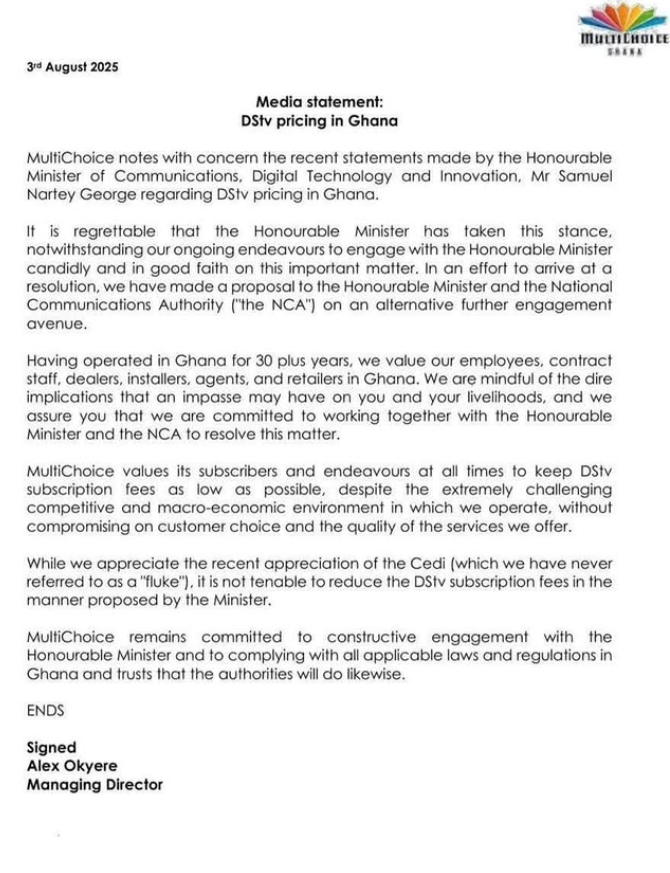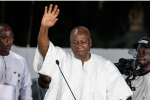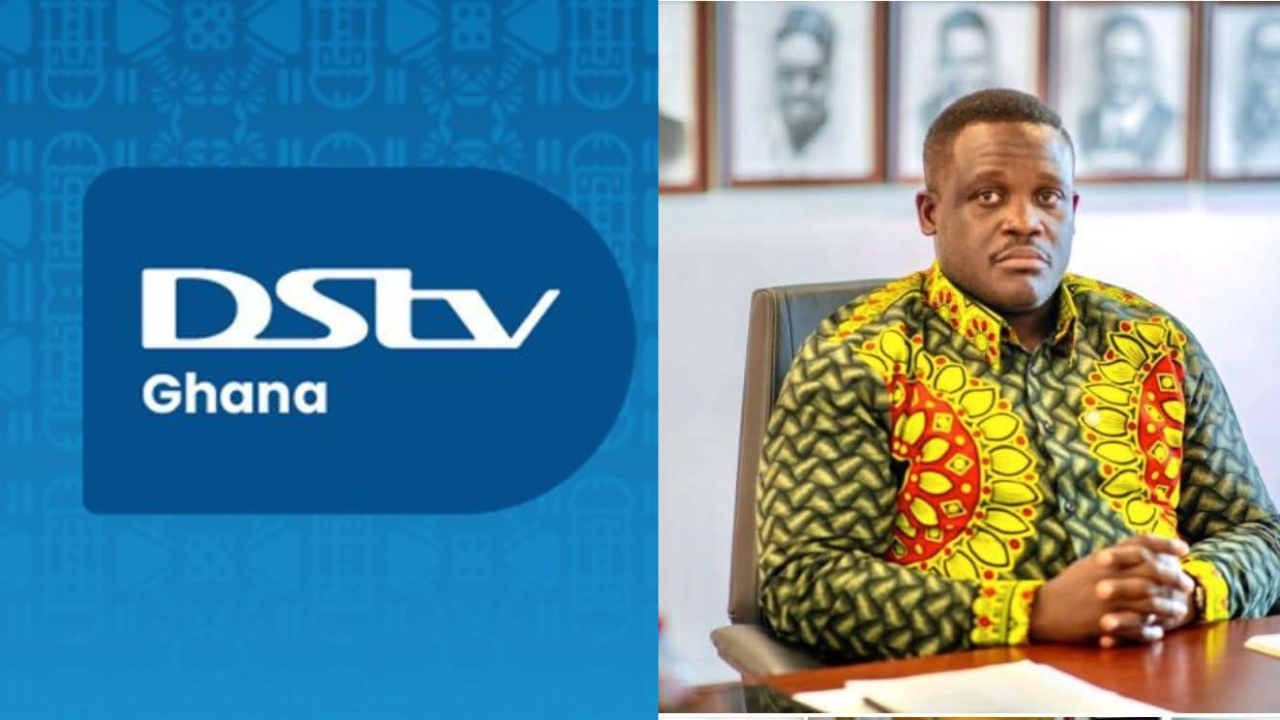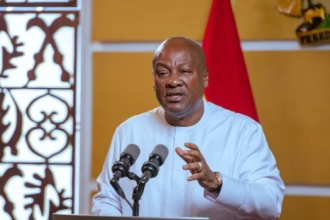As Ghana approaches a critical deadline set by Minister for Communications, Sam George, tensions between the government and MultiChoice (DStv Ghana) have intensified. The broadcasting company has responded firmly to the Minister’s ultimatum, rejecting the demand to reduce subscription prices and offering a counterproposal that was promptly dismissed.
In early April 2025, MultiChoice implemented a 15 percent price hike on DStv packages across Ghana. The move was met with widespread criticism, with consumers and officials arguing that the increase was unjustified given Ghana’s strengthening economy, stabilizing inflation, and firming currency. Minister Sam George spearheaded the opposition, referencing Nigeria’s regulatory intervention that led to a reversal of similar hikes by MultiChoice’s Nigerian branch.
On Sunday August 3, MultiChoice released a detailed response challenging the Minister’s directive. The company stated unequivocally that the demand to slash prices was “not tenable.” Citing operational costs, content licensing fees, and broader economic pressures, the broadcaster argued that reducing prices would compromise service quality and business sustainability.
MultiChoice also underscored its longstanding presence in Ghana, noting over three decades of contribution to the local media landscape. It emphasized that any abrupt regulatory action would negatively affect its workforce, partners, and consumers who rely on its services for entertainment, education, and information.
As a gesture of compromise, MultiChoice proposed maintaining current pricing while halting the repatriation of revenue to its headquarters. This, it argued, would alleviate some economic concerns while preserving service delivery. However, Sam George rejected this proposal, labeling it “illogical” and irrelevant to the core issue of fair consumer pricing.

With the August 7 deadline approaching, the fate of DStv’s operations in Ghana hangs in the balance. The Minister has stated that failure to reduce bouquet prices could lead to the suspension of MultiChoice’s broadcasting license via the National Communications Authority. Such a move would significantly impact consumers, especially in rural and peri-urban areas where satellite TV remains a primary source of information.
Consumer advocacy groups have voiced support for the government’s position, calling for increased transparency in media pricing and stronger regulatory oversight. Meanwhile, MultiChoice continues to stress its commitment to legal compliance and constructive dialogue.
This standoff reflects broader tensions between governments and multinational corporations over pricing structures, revenue flows, and consumer protection. Whether a resolution can be reached before the deadline is still uncertain, but what is clear is that the outcome will shape the future of pay-TV services in Ghana for years to come.












